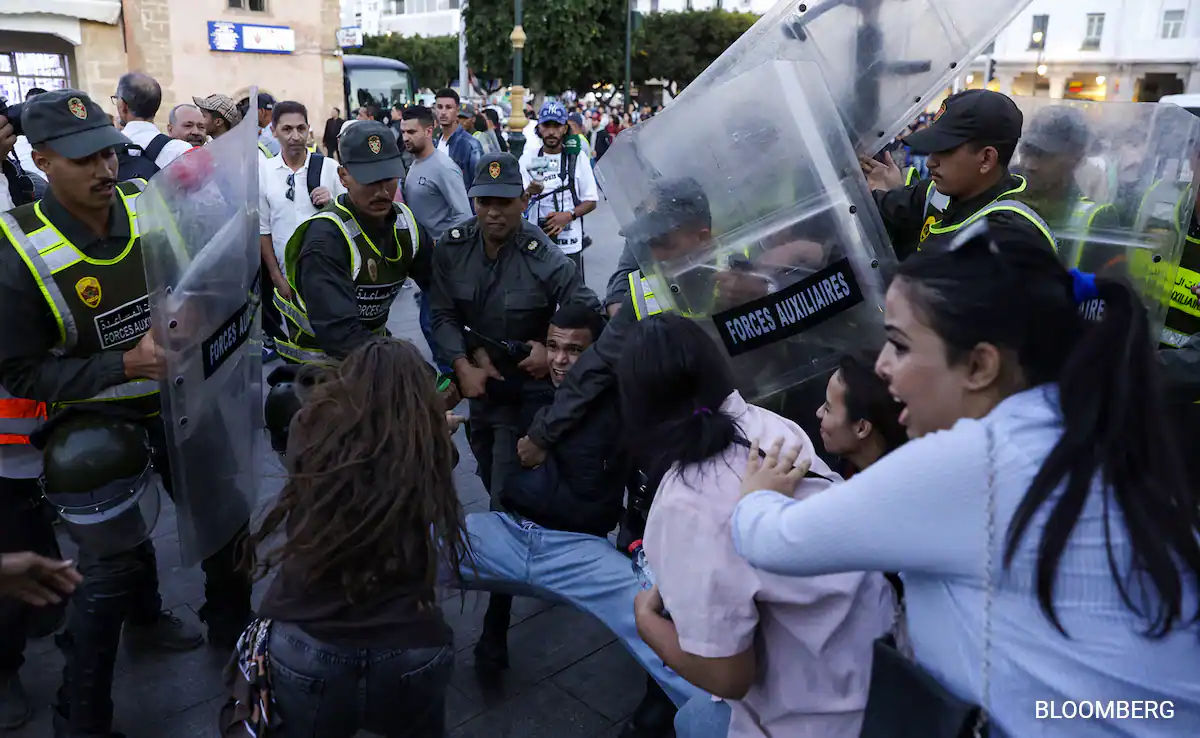
After nearly a week of youth-led protests that swept across major Moroccan cities, the government has called for “dialogue and debate” as tensions rise over demands for political and social reform.
Prime Minister Aziz Akhannouch on Thursday reaffirmed his administration’s commitment to engaging with young people, following six consecutive days of demonstrations sparked by a movement calling itself “Generation Z.”
The protests, many of which were organised on social media, have highlighted widespread frustration over corruption, poor public services, and a lack of opportunities.
Some of the demonstrations — held without official authorisation — turned violent in cities including Inezgane, Oujda, Tiznit, Skhirat and Salé. According to the Interior Ministry, three people were killed on Wednesday night while attempting to storm a gendarmerie post in a village in southern Morocco.
Local officials said the group had tried to “steal ammunition and service weapons” from the facility in Lqliaâ, near Agadir.
Speaking in Rabat, Akhannouch condemned what he described as a “dangerous escalation” that had “undermined security and public order,” leaving hundreds of police officers injured and causing significant damage to public and private property.
At the same time, he stressed that dialogue remained the “only way” to resolve the deep-rooted issues driving the unrest.
“The government has been following the regrettable developments that have taken place over the past two days in many cities across the Kingdom, which have descended into a dangerous escalation that undermines security and public order,” he said.
“The approach based on dialogue constitutes the only way to address the various problems facing Morocco and accelerate the pace of implementation of public policies… to achieve the common ambition of all Moroccans.”
Younes Sekkouri, Minister of Economic Inclusion, Small Business, Employment and Skills, echoed this call, stressing the importance of creating a structured and credible dialogue.
“It is essential to structure this dialogue in order to achieve concrete results, with all proposals naturally having to be put on the table,” he said.
Abdeljabbar Rachidi, Secretary of State for Social Integration, added: “We are ready to dialogue, to discuss, to define priorities and to implement them.
We are not just listening, we are also ready to establish an agenda, to respect our commitments and to listen to young people in all their diversity of expression.”
Despite the government’s conciliatory tone, demonstrations continued into Thursday evening, though they remained largely peaceful.
Local media reported that organisers from “GenZ 212” had agreed to limit marches to between 5 p.m. and 8 p.m., as authorities deployed heavy security in cities that had seen unrest.
Protesters are demanding sweeping reforms, particularly in the health and education sectors, and a stronger crackdown on corruption — issues that many young Moroccans see as essential to their future.



